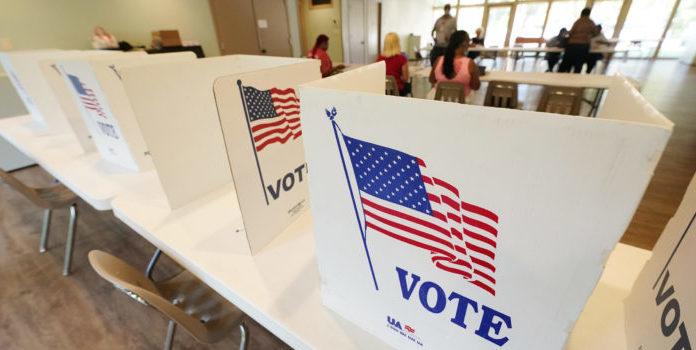Supporters of a ballot initiative that would raise California’s minimum wage are asking a court to command Secretary of State Shirley Weber to include the initiative on the November 2022 ballot following an announcement that the measure failed to qualify, The Center Square reported.
The measure, which would raise California’s minimum wage to $18 an hour over several years, did not qualify for the November 2022 ballot, but will appear on the ballot in November 2024, the secretary of state announced earlier this month. Backers of the initiative, however, assert that they collected enough signatures to secure a place on this November’s ballot, according to a suit filed Thursday in Sacramento Superior Court.
Entrepreneur Joseph Sanberg, Orange County Democratic Party Chairwoman Ada Briceño, and U.S. Rep. Nanette Barragán are now seeking a writ of mandate that would compel Weber to place the initiative on the November 2022 ballot.
The suit alleges that initiative supporters “faced significant challenges in collecting signatures” due to the COVID-19 pandemic, resulting in signatures being submitted to county registrars “later than expected.” Despite these challenges, Sanberg and his supporters say they collected over 1 million signatures by mid-May to qualify the initiative for the November ballot.
The lawsuit also asserts that the secretary of state “failed in its duty to inform counties” that the initiative was intended for the November ballot, telling counties in a May 31 directive that they had until mid-July to verify signatures. In order for initiatives to qualify for the November ballot, signatures had to be verified by June 30.
“The Secretary of State’s erroneous notification to the counties had the effect of confusing several county elections officials into thinking that they had until July 13, 2022 to conduct and report their signature verification findings to allow the Initiative to be certified for the November 8, 2022 General Election ballot, instead of June 30,” the filing states.
As a result, several counties delayed reporting to the secretary of state, which led to the initiative falling short of enough signatures to qualify for the November ballot by deadline, the filing alleges.
“If not for the failure of the Secretary of State to fulfill her duty and inform counties of the June 30, 2022 submission deadline, the Initiative would have qualified and been certified for the November 2022 ballot,” the filing says.
California’s minimum wage increased to $14 per hour for employers with 25 employees or less and $15 an hour for employers with 26 employees or more on January 1 of this year. The minimum wage is set to increase to $15 an hour for all employers on January 1, 2023.
Sanberg and other backers of the ballot initiative, however, argue that the minimum wage should be increased to provide workers with a more livable wage.
In a statement addressing the lawsuit on Friday, Sanberg said “neither pandemic nor bureaucratic failure should get in the way of Californians exercising their democratic right” to vote on the measure in November.
The secretary of state’s office did not respond to a request for comment by deadline Friday.
Seven other measures qualified for the November ballot, including a measure that would raise taxes on wealthy individuals to fund electric vehicle subsidies and a measure to enshrine the right to an abortion and contraceptives in the state constitution.

